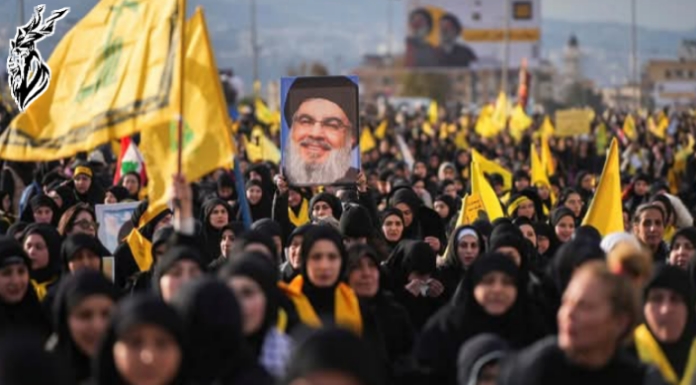Hezbollah Stages Mass Funeral for Slain Leader Nasrallah in Show of Defiance.
Hezbollah staged a colossal funeral procession in Beirut on Sunday for its assassinated leader, Hassan Nasrallah, drawing over one million supporters in a stark display of unity amid escalating tensions with Israel. The resistance group framed the event as a rebuke to recent Israeli military campaigns targeting its leadership.
Key Details
Nasrallah, killed in a September 2024 Israeli airstrike, was temporarily buried in secrecy before Sunday’s public ceremony. Crowds clad in the group’s signature yellow flags packed streets and a sports stadium, chanting slogans of resistance. Lebanese security forces estimated attendance at “historic levels,” underscoring Nasrallah’s enduring symbolic sway.
Defiant Rhetoric
In a prerecorded address broadcast to mourners, Hezbollah’s current secretary-general, Naim Qassem, vowed retaliation. “We remain unbroken. Resistance is our only path,” he declared from an undisclosed location. His speech amplified the group’s narrative of resilience despite losing key figures, including senior official Safieddine, targeted days after Nasrallah.
Legacy of a Leader-Nasrallah
Nasrallah elected Hezbollah’s leader in 1992 at age 32, transformed the faction from a militia into a regional powerhouse. His tenure saw Israeli forces withdraw from southern Lebanon in 2000 after a 22-year occupation and the group’s survival of the devastating 2006 war with Israel.
**Looking Ahead** Hezbollah now navigates a post-Nasrallah era, its identity tethered to his legacy of armed resistance. With grassroots networks and military assets intact, the group faces pressure to respond to Israeli strikes while retaining its grip on Lebanese politics.
Recent Pressures
Israeli airstrikes have intensified since May 2024, targeting alleged Hezbollah positions across Lebanon. Five strategic border hilltops remain under Israeli military control. Analysts argue Nasrallah’s death exposed vulnerabilities, but Sunday’s turnout aimed to counter perceptions of weakness.
Security Measures
The Lebanese army secured major routes to the burial site, raising alert levels to prevent disruptions. Nasrallah’s delayed public interment—weeks after his death—added political weight to the ceremony, which supporters framed as a “pledge to continue his path.”
